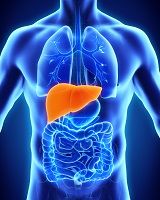Improved Odds in Pediatric Liver Transplant
Impoved techniques and medical treatment are keeping children alive an average of at least 20 years after their surgery, a study from France reported.

Most pediatric liver transplant patients are living at least 20 years after their surgery, a study from France has shown.
In research presented today at the International Liver Congress in Barcelona, Josefina Martinelli of the Paediatric Liver Unit at Bicetre Hospital looked at the medical records of 128 consecutive children who had transplants from cadaver donors at her center from 1988 to 1993.
Her team found that 80% of these patients could expect to reach the 20-year survival mark.
The findings appear to show progress. In 1998, a similar study at the University of California Los Angeles found the 10-year survival rate for pediatric liver transplant patients was 76%, though the studies differed in that the California study included cases where the livers came from living donors.
Pediatric patients make up about 12.5% of liver transplant recipients.
The researchers looked at patient survival rates at five year intervals. Patients survived longer overall than did the grafted livers.
At five years, for instance, 84% of patients were alive while the graft survival rate was 73%. By the 20-year mark, 79% of patients were still living but 65% of the transplanted livers were still functioning.
The most common complications experienced by patients were infection (59%) followed by acture rejection (44%) and chronic rejection (37%).
Chronic kidney disease was present in about of a third of patients.